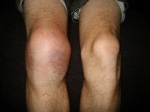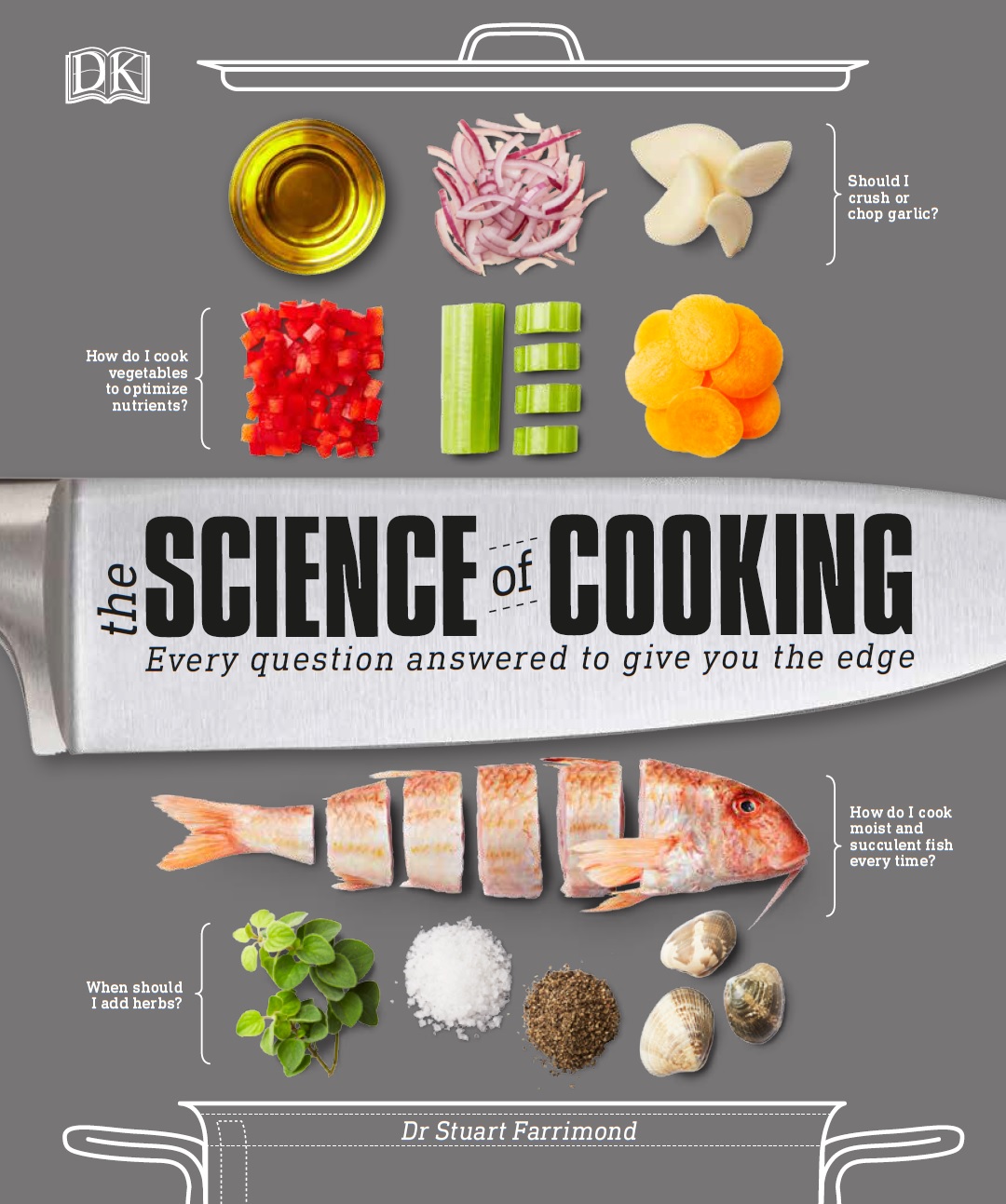We sure love popping pills.
 In the last two decades, popular culture has decreed that three basic meals a day isn’t enough: modern-day healthy living needs something more - supplements. Despite a global economic downturn, the world’s appetite for dietary supplements remains insatiable; every year we collectively swallow over fifty billion dollars of minerals, vitamins and weird herb extracts.
In the last two decades, popular culture has decreed that three basic meals a day isn’t enough: modern-day healthy living needs something more - supplements. Despite a global economic downturn, the world’s appetite for dietary supplements remains insatiable; every year we collectively swallow over fifty billion dollars of minerals, vitamins and weird herb extracts.
Stepping into the Aladdin’s treasure trove of weight-loss berries, anti-cancer honeys and natural pain-fighting remedies (that is your local health food store) how do we know which (if any) actually work? Often endorsed by high profile celebrities and glossy magazines – I’m in pursuit of finding out which actually do anything useful...
Do Dietary Supplements Work?
Finding out the truth behind supplement hype is a bit like the apple-bobbing: the moment you think you getting a bite of something good, it slips away leaving you with the lingering taste of insipid water. There’s a bewildering array of misinformation, marketing spin and downright lies. Most research isn’t very good, and worse, much is funded by the supplement manufacturers – keen to prove their supplement will help change lives.
On this proviso, I endeavour to give a fact-based overview of the five best selling supplements in health food stores today. So according to current market research, here’s the top five rundown of most popular dietary supplements - and whether they actually work:
5. Glucosamine
 Glucosamine is a chemical naturally found in the body; a crucial ingredient in the body’s slippery joint-lubricating cartilage, and taking a glucosamine supplement is supposed to treat arthritis.
Glucosamine is a chemical naturally found in the body; a crucial ingredient in the body’s slippery joint-lubricating cartilage, and taking a glucosamine supplement is supposed to treat arthritis.
It has garnered a fervent following from previously stiff-limbed fans desperate for relief from a condition that has no cure. Many people swear that glucosamine has done amazing things for their joints; and it’s difficult to argue with someone who says it has made them “feel twenty years younger”.
Although some doctors still prescribe it, unfortunately the general consensus is that it doesn’t work. Tit-for-tat research over the years has shown that it works, then it doesn’t, then it does - but the last three years have yielded comprehensive conclusions (meta-analyses) that have shown that glucosamine works no better for arthritis than a dummy pill.
Is it Worth it? Glucosamine supplements almost certainly doesn’t cause harm, but they are unlikely to help your joints much either.
Extra reading: Effects of glucosamine, chondroitin, or placebo in patients with osteoarthritis of hip or knee: network meta-analysis - large review of all available blinded trials that concludes: “Compared with placebo, glucosamine, chondroitin, and their combination do not reduce joint pain or have an impact on narrowing of joint space. Health authorities and health insurers should not cover the costs of these preparations, and new prescriptions to patients who have not received treatment should be discouraged.”
4. Omega 3 Supplements
The Western World has gone a bit omega-3 mad. A Supplement that sounds like the home of the Klingons has appeared on milk, eggs and bread packaging. Most of us haven’t a Scooby Doo as to what it is, less whether it’s worth buying.
 Ignore the media hype – omega-3 is infinitely crucial for the brain, heart and immune system to function normally. It is an ‘essential fat’ that we must have in our diet and surveys show that nine out of ten of us don’t get enough of this in our normal intake. Taking an omega-3 supplement (or that pricey spread emblazoned with “contains Omega 3”) would therefore sound like a sensible idea. However, a good diet could do just the same thing: eating two to four portions of fish a week (one of which is oily) will be more than enough to keep you topped up on omega-3.
Ignore the media hype – omega-3 is infinitely crucial for the brain, heart and immune system to function normally. It is an ‘essential fat’ that we must have in our diet and surveys show that nine out of ten of us don’t get enough of this in our normal intake. Taking an omega-3 supplement (or that pricey spread emblazoned with “contains Omega 3”) would therefore sound like a sensible idea. However, a good diet could do just the same thing: eating two to four portions of fish a week (one of which is oily) will be more than enough to keep you topped up on omega-3.
For people recovering from a heart attack or heart disease, omega-3 is vital – and supplements have been shown to aid recovery. So those of us who can’t handle the fish. a capsule will clearly benefit.
Buyer Beware: There are many cheap supplements that have poor quality ingredients. Always check the packet to make sure it contains ‘EPA and DHA’ – a marker of sufficient quality. Also check how much it contains - recommend doses are 500mg – 1,000mg a day.
Worth it? People with heart problems should definitely make sure they get enough Omega 3 fats. For the rest of us, eating more fish (as part of a balanced diet) could be a better route to a healthier body.
Update: Since this article was first posted, more research has been published. A large review of available evidence recently published in the Journal of the American Medical Association concluded that omega 3 supplementation “was not associated with a lower risk of all-cause mortality, cardiac death, sudden death, myocardial infarction, or stroke based on relative and absolute measures of association.” A separate study in the Journal of the National Cancer Institute has found a statistically significant link between omega 3 supplementation and prostate cancer.
There is good evidence to show that omega 3 supplements can reduce inflammation (see this thorough meta-analysis published in 2012 in the British Journal of Nutrition) and may be useful in the treatment of inflammatory conditions (such as rheumatoid arthritis). There is some evidence that omega 3 may help reduce muscle soreness after exercise, although there is conflicting research. It is generally advised to avoid omega 3 supplementation unless under the guidance of a doctor.
3. Cod Liver Oil
If you’re old enough, you’ll remember mother force feeding you a spoonful of this vile tasting fish syrup each morning. It’s a remedy as old as the hills (well, at least 300 hundred years old) – but are its healing powers a load of codswallop?
 Traditionally used for ‘rheumatism’ – the jury is still out as to whether cod liver oil really does help aging joints. It is chock-full of omega-3, vitamin A and D and one thing is for sure - if today’s youngsters were still getting their daily dose then their bones would be stronger. Recent years has seen the re-emergence of kid’s bendy-bone disease – Rickets. Caused by a lack of sunlight and oily fish; cod liver oil will provide the essential vitamin D needed for healthy bones.
Traditionally used for ‘rheumatism’ – the jury is still out as to whether cod liver oil really does help aging joints. It is chock-full of omega-3, vitamin A and D and one thing is for sure - if today’s youngsters were still getting their daily dose then their bones would be stronger. Recent years has seen the re-emergence of kid’s bendy-bone disease – Rickets. Caused by a lack of sunlight and oily fish; cod liver oil will provide the essential vitamin D needed for healthy bones.
Worth it? Good for bones and (and possibly preventing cancer) – a regular intake of oily fish and sunlight is a probably a better alternative than a supplement. Failing that, an odourless capsule would suffice – but always avoid a supplement in pregnancy. Also, check the dosage (especially in children) – as it is quite easy to overdose on Vitamin A.
Update: Since this article was published in 2011, more research has come to light. The National Institute of Health have compiled a very comprehensive review of the available research (click here) highlighting that fish oils can be helpful in helping in controlling cholesterol levels. Note the evidence levels for other conditions and whether taking fish oils can interfere with prescribed medications.
2. Vitamin C
Few people ever win a Nobel Prize. Linus Pauling had won two and was after his third. In the 1970s, he made the claim that large vitamin C doses would treat anything from cancer to the common cold. Forty years later, we can (with a fair degree of certainty) conclude that this great polymath was quite wrong. All the better that he never won his third Nobel Award then…
 Eating oranges have become synonymous with stopping a cold – although in reality chomping through the citrus is unlikely to help much. The best research has shown that vitamin C supplements help fight off a cold, but can’t stop you getting it in the first place. The benefit of vitamin C seems to be best for those who live on the edge - extreme athletes and sportspeople who are constantly pushing their body to its limits. For you and I, vitamin C may reduce the length of the sniffle and headache, but only in some hefty doses (more than you’ll ever get from eating oranges). But be advised, more than 500mg in one dose could give you some rather uncomfortable side effects.
Eating oranges have become synonymous with stopping a cold – although in reality chomping through the citrus is unlikely to help much. The best research has shown that vitamin C supplements help fight off a cold, but can’t stop you getting it in the first place. The benefit of vitamin C seems to be best for those who live on the edge - extreme athletes and sportspeople who are constantly pushing their body to its limits. For you and I, vitamin C may reduce the length of the sniffle and headache, but only in some hefty doses (more than you’ll ever get from eating oranges). But be advised, more than 500mg in one dose could give you some rather uncomfortable side effects.
Worth it? Nearly every Westerner’s diet has enough vitamin C in it for good health – so there’s no need to go worrying about scurvy. Taking extra vitamin C is safe (except in the very highest doses) but unlikely to give any life-changing benefit.
Smoker? If you smoke – you really ought to take extra vitamin C (or quit!). Those cancer sticks burn up vitamin C faster than your bank balance – and 2000mg of Vitamin C a day is called for.
1. Multivitamins
One tablet does it all - so why bother with separate tablets when a multivitamin tablet could do the job?

For many years, many physicians and fitness experts have advised a multivitamin to ensure you meet your daily healthy requirement of all the basic vitamins and minerals.
It makes a huge amount of sense given the odd diets many of us have, but as with most dietary supplements – evidence for its effectiveness is distinctly lacking.
Worth it? It makes logical sense, but large-scale trials fail to show any real benefit for most people in taking a multivitamin tablet.
But Supplements are Good for some people
These article draws upon research based on statistics of large numbers of ‘normal’ people. Many of us (such as those with cancer, pregnant women, and the elderly) may benefit from nutritional supplements. If you have a medical condition, it is always worth consulting a medically trained professional to see if any dietary changes may benefit you.
Why do people still take supplements?
It’s difficult to explain why so many people take supplements, when the evidence for their efficacy is so lacking.
Much of the purported benefit may be explained by the placebo effect, which is eloquently explained in this video:
Now, I can’t claim to have all the answers. Advocates of alternative therapies will be quick to point out that scientific studies have their limitations – namely that randomised trials assume that all humans are physiologically the same and may overlook more subtle effects.
Science has its limitations, but I believe it is the best we have. Given the amount of profiteering done by ‘healthy living’ companies who cash in on our want to live long and healty, I’d always suggest hunting down the facts than making a decision from hearsay…
Thanks for reading - comments and feedback are warmly welcomed! Opinions expressed are my own…
BORED WITH SCIENCE WRITING? I was - but I’ve been lucky enough to part of a team that has launched a free, bi-monthly digital magazine which tries to deliver understandable science writing. It’s also about giving new or undiscovered writers a chance to write to a growing audience of readers. Why not check it out here! I think it’s rather cool…
Disclaimer:
Always consult a medical professional before taking any nutritional supplement. Some supplements can have adverse effects in some individuals and may interact with existing medications.
SELECTED REFERENCES: (there are plenty more!!)
Heimer, K., Hart, A., Martin, L., & Rubio-Wallace, S. (2009). Examining the evidence for the use of vitamin C in the prophylaxis and treatment of the common cold Journal of the American Academy of Nurse Practitioners, 21 (5), 295-300 DOI: 10.1111/j.1745-7599.2009.00409.x
Mintel Market Researc (2011) Vitamins and Supplements - UK - September 2011. Mintel Group: London.
Wandel, S., Juni, P., Tendal, B., Nuesch, E., Villiger, P., Welton, N., Reichenbach, S., & Trelle, S. (2010). Effects of glucosamine, chondroitin, or placebo in patients with osteoarthritis of hip or knee: network meta-analysis BMJ, 341 (sep16 2) DOI: 10.1136/bmj.c4675
Huang HY, Caballero B, Chang S, Alberg A, Semba R, Schneyer C, Wilson RF, Cheng TY, Prokopowicz G, Barnes GJ 2nd, Vassy J, & Bass EB (2006). Multivitamin/mineral supplements and prevention of chronic disease. Evidence report/technology assessment (139), 1-117 PMID: 17764205
Douglas, R., & Hemilä, H. (2005). Vitamin C for Preventing and Treating the Common Cold PLoS Medicine, 2 (6) DOI: 10.1371/journal.pmed.0020168











Hey DrStu - this is all pretty interesting, but I have one fact to quibble over - saying that buying fish 2/4 times per week is cheaper than swallowing a capsule ? Where do you buy your fish - I can hardly ever afford to buy fish for a family, so much cheaper just to throw out a round of multi-vits!
My 2 pen’orth
Mother of 4
Posted by Alice Jackman | October 16, 2011, 8:20 pmHmmmm, It would take far longer then I have to fully respond to this commentary. to summarize however, I couldn’t DISAGREE with you more. In my opinion ( which is shared by many people and a growing number of Dr) is that unless one is consuming a well balanced diet of organic fruits and vege (5-9 servings/day and chips don’t count) plus adequate protein (60grams plus/day) from grass fed, pasture raised, sea food from non polluted sources etc. AND not exposed to toxins and pollutants. then one probably does not need supplements. Otherwise my opinion is that GOOD supplements are true “health insurance” as opposed to “medical insurance” which pays for medical care AFTER the individual gets sick.
Posted by Kristin Owen | October 17, 2011, 1:22 amKristin - It is polite on a blog to provide (credible) citations for your comments, otherwise they are just pure assertions on your part. Would you like to cite references to this growing number of doctors? And in what way your opinions are backed up by evidence? There is a wonderful website called tomorrows table that puts the whole ‘organic’ meme in perspective. They have good articles illustrating that the benefits from organic produce - which suffers from a number of vague definitions in itself are somewhat elusive. Perhaps you would like to discuss to which toxins and pollutants you refer??
And what evidence do you have that your supplements actually address any of your points? As for GOOD supplements - in most countries such chemicals are peddled without the manufacturer having to provide evidence of efficacy safety or any form of basic quality control. Many of these concoctions have been shown to be containated with a number of toxic substances. There was a big problem in Australia a few years ago.
If there is no requirement for the makers to provide any realistic information in relatino to their product - how are we to know what is GOOD??
Posted by Shane | October 17, 2011, 5:58 am“Advocates of alternative therapies will be quick to point out that scientific studies have their limitations – namely that randomised trials assume that all humans are physiologically the same and may overlook more subtle effects”
They can be quick to point, but do they have a point?
If you think you can spot which type of person would benefit from treatment W, you can study that in a randomized trial. Happens all the time. You don’t give herceptin to breast cancer patients that don’t have the marker (Her2+). “more subtle effects” might mean one’s the experimenter forgot to measure, or in the case of some woo, that it can’t be measured. Maybe you mean the effect is so tiny that it doesn’t register as significant - not sure.
Trials “assume all humans are physiologically the same”?. That’s not even true. We think there is variation - otherwise we wouldn’t need to randomize, right?
Posted by rork | October 17, 2011, 5:55 pmYou are frightening me.
Posted by rork | October 18, 2011, 2:22 pmCome again?
Posted by Stuart Farrimond | October 18, 2011, 4:27 pmSorry, not enough time to point out all the fallacies of your Chinese quote. I figured that should be part of your mission, but it looked like you had abandoned it, and I was worried you were drinking the cool-aid. It is easy to note that the attitude it conveys opens the door for every brand of placebo treatment, including ones we can invent this very minute. Quacks of 20 flavors, and with acres of skin in the game, have been polishing that language for decades, so it’s no surprise it might seem seductive on first reading. There’s a pretty good harem of bloggers at sciencebasedmedicine.org using tens of thousands of words dismantling such lies, or maybe it’s just the self-deception of charismatic healers, trying to lighten the wallets of quacks and protect their prey. It helps if there are a few grains of truth scatter about as well, and there are. Like “the therapeutic encounter” - lots of people don’t get enough time with their real doc, but the chiropractor or homeopath or acupuncturist can see you soon, and will talk to you, and will come up with a diagnosis and a treatment on the spot almost regardless of your complaint. Your real docs give you 15 minutes maybe, and will not even give you placebo treatment with the lie that it do something specific - the fascist bastards (I’m in USA).
As for the goldfish analogy, it would be easier to say why there is no real cause for complaint, other than “biology can be complicated”, if it was a real example. You can dice the people up as finely as you like in a study. Today’s NCI cancer bulletin summarized studies of whether breast cancers with BRCA2 mutations are better or worse than others. We don’t wish to treat every person the same if that is not best, but to actually have good evidence that this kind of person benefits from a particular treatment takes time, money, and enough patients (I study adrenal cancers, and it is so rare that it is very hard to get enough patients to chop them up into little groups to try different things on and learn something), and is slow and hard compared to using inspiration or “personal experience” or subjective diagnoses.
Posted by rork | October 19, 2011, 1:46 pmI do not have any scientific studies to prove the worth of vitamin C but I do know people who take high dose vitamin c religiously, which has a different effect than regular vitamin C. They claim to not have been sick in years since taking the high dose vitamin c supplements on a daily basis. Their claims are enough to get me interested. My friend has been buying High dose vitamin c from http://www.livonlabs.com/ consistently. She said she can feel the difference it makes. Whether or not it is preventing a disease or if it from psychological reasons that she is still healthy is up to her and those who wish to question her claims. But claims like these, I think, can not be ignored, even if they are not scientifically proven. Thoughts?
Posted by Sam Adams | October 20, 2011, 9:10 pmHarriet Hall has a wonderful response. ‘The plural of anecdotes is not evidence’
Otherwise your post sounds like a veiled spam attempt with the same level of eveidence we usually expect from the alt med crowd.
Bah..
Posted by Shane | October 24, 2011, 3:05 amLove your blog but have to disagree with your conclusions here. I have a PhD in Pharmacology/ Toxicology and like you had to leave my field early for medical reasons. If you go to lifeextension foundation, you will find hundreds of many well referenced articles there. The foundation advisors are all medical scientists and specialists in their field.
Posted by Jen | November 28, 2011, 10:52 amThanks Jen!
Could you post the link please? (I can also add it to the main article to give a different angle)
Stu
Posted by Stuart Farrimond | November 28, 2011, 12:51 pmThis is Big Pharma Propaganda. Huge drug companies don’t want you to take anything other than what they sell, at an insane over-priced rate. They have no intention of curing anything. They just want to suck all the money out of your wallets for the rest of your lives. Well over 100,000 recorded American deaths from prescription drugs take place every year. There are several hundreds of thousands more that go completely unreported. Big Pharma is not about healing anything, it’s only about maintaining a modicum of health by taking highly toxic and extremely dangerous meds for the rest of your life. IT’S ALL ABOUT HUGE PROFITS PEOPLE, THEY HAVE NO DESIRE TO CURE ANY OF US, EVER!!!
Posted by Ryan | January 1, 2012, 10:36 amDoesn’t anyone, besides me, find it highly suspicious that with all of the millions and millions of dollars donated to causes like cancer, diabetes, etc. that they never ever seem to find a cure for anything. More people than ever are dying from such illnesses every single day, and the numbers keep on increasing. WHERE ARE THE CURES? DECADES GO BY AND NO CURES ARE EVER FOUND!! YET, STRANGELY ENOUGH, THEY SEEM TO ALWAYS COME OUT WITH MORE DRUGS THAT WE ALL HAVE TO TAKE FOREVER, JUST TO MAINTAIN THESE AND MANY OTHER ILLNESSES, THEY CAN MAINTAIN THEM AT THE EXPENSE OF MANY SEVERE SIDE EFFECTS FROM THE DRUGS THEY SELL US, BUT NOTHING IS EVER CURED!! DO YOUR RESEARCH PEOPLE!! DRUG COMPANIES ARE AMONGST THE MOST HIGHLY PROFITABLE ORGANIZATIONS ON EARTH!! WHY!! WAKE UP AND ASK YOURSELVES WHY!!
Posted by Ryan | January 1, 2012, 10:42 amCouldent agreed with you more
Posted by Juiceman | June 5, 2012, 12:50 amFACT: I had restless leg syndrome for several years. found out that calcium, magnesium could solve the problem,and yes it did changed my life. Then I started researching vitamins.And again at the age of forty after getting home from work I could barely get out of my car
and walk.I felt like a crippled person. I started drinking Monavie, and in a couple of weeks I was moving as if nothing was ever wrong. This juice has glucosamine and celadrin along with amazing fruits, anyway now I just take glucosamine with Vitamine C supplements altho I miss taking
Monavie. The supplements work great. The research about glucosamine From what Stuart says is wrong or tainted. Maybe they are not taking take enough of it, and I think that is really the problem . One pill a day just aint going to cut it.Most supplements allowances on the bottle are WELL BELOW whats needed Im sure the FDA has something to do with that.
I conclude with Dr. Oz who is a well know surgen and he recomends the supplement with fish Oil, and other supplements before a heart attack lol. Dr Mark Hyman is adamant of supplements. and of coarse if you can get it from organic fruit, Grass fed beef etc then your way ahead of the ball game.
I could go on all day about supplements and natural cures the FDA dont want you to know about. so do your own research But remember the daily dosage supplement recommended are most likely not enough so I guess that is a big reason to say they dont work. Find out How many you can take safely your health is in your hands not the Doctors And remember thousands of people a day die every day from Pharmaceutical drugs
not from supplements .
Good luck on your journey to healthy life
Juiceman
Posted by Juiceman | June 5, 2012, 2:05 amFACT: and statement preceded by the statement FACT will not stand up to scrutiny
Posted by Pedanto | July 9, 2012, 7:45 pmWhat a cliche of an article from a General Practitioner. Spent 98% of his training looking at drugs and surgery, therefore everything else is quackery. Anyone who has persisted with some of these supplements knows how effective they can be. Your article, in its denial, is a dangerous as a Doc saying ‘don’t worry about your bad back, just get a flat bed’. Wake up mate, it’s 2012.
Posted by Wilber | December 14, 2012, 11:40 pmThis is by far the most worthless article I have ever read. Okay so we all know that VItamin C is in oranges. You have to watch out for oranges if you are health conscious. They have a ton of sugar. About 12 years ago, Orange Juice was the leading cause of childhood diabetes. Okay so on to something else: Omega. Now… Omega’s are great. As an athlete I take them. Fish costs a ton and using Omegas has not only helped me build a stronger immune system but also helped in weight balance. Multi Vitamins. Multi’s are a tough call. If you take just one a day, your body pees out everything that is too much. For example the B’s and C’s which is why your urine is almost green if you take an energy vitamin. Glucose has been used byorthopedic surgeons for quite some time. It helps my wife with her joint problems. She went from EMU oil to Glucose due to cost. There is no question it helps and has been proven to help others.
Do we all want to be able to pay for all of the foods that have all of this in them? Well yea! However not everyone can afford every type of food (esp fish) that has what we need. On a side note, using wikipedia LOL for your “side effects” isn’t even close to accurate. Do realize that people can write in and change wikipedia on their own.
The details of this artcle are a farse. You are more than welcome to e-mail me. I would love a good battle with a person who knows 50 percent of nutrition.
Posted by Danny | March 7, 2015, 5:04 amThanks for your comments. It has been some time since this article was originally written and so additional links and reading have been added to highlight more recent research. I hope these are useful.
Speaking only of the available evidence, omega 3 supplements appear to have a role in the immune system functioning (specifically, they help to reduce inflammation and may help cancer patients recover from chemotherapy). There is presently no evidence that they help in weight loss (http://ajcn.nutrition.org/content/early/2010/12/15/ajcn.110.002741.short)
Glucosamine (I presume glucose was a typo) has been studied intensively. Early research suggested that it helps in joint problems and so was adopted by many physicians. More comprehensive research now shows that it works no better than placebo.
Your point about Wikipedia is valid and so the link for the side effects of high dose vitamin C has been changed.
I also note that fish is actually now quite expensive and so have removed the comment about eating fish as a way to save money.
Bottom line: supplements are essential for people with specific nutritional deficiencies and can be very useful in certain conditions. They should not be taken without consideration of the pros and cons and it is always worthwhile speaking to a doctor first.
Posted by Stuart Farrimond | March 7, 2015, 12:00 pm